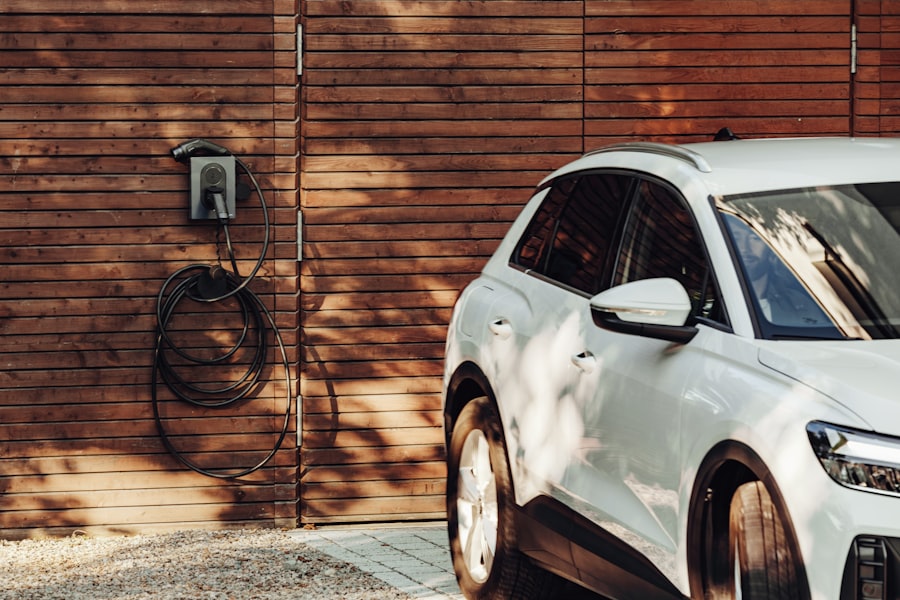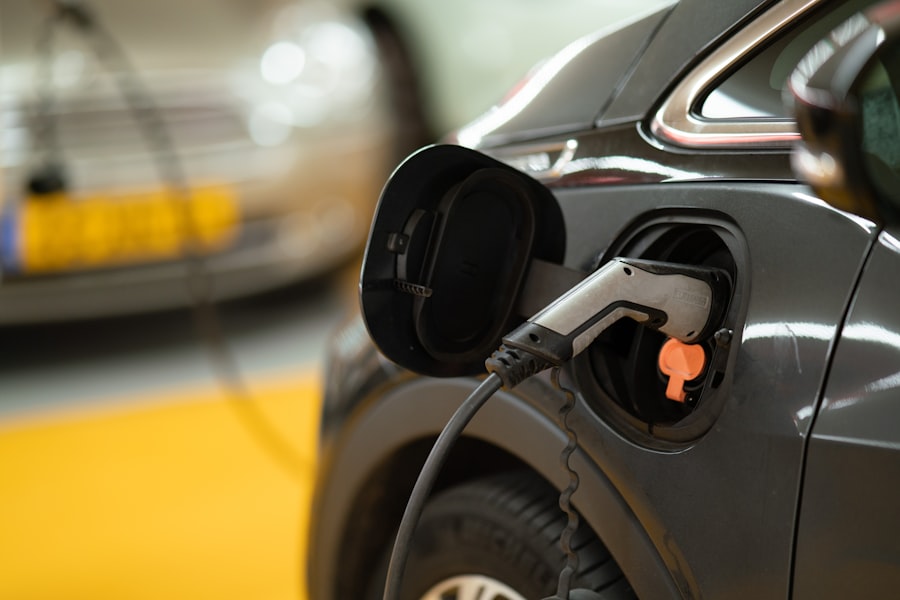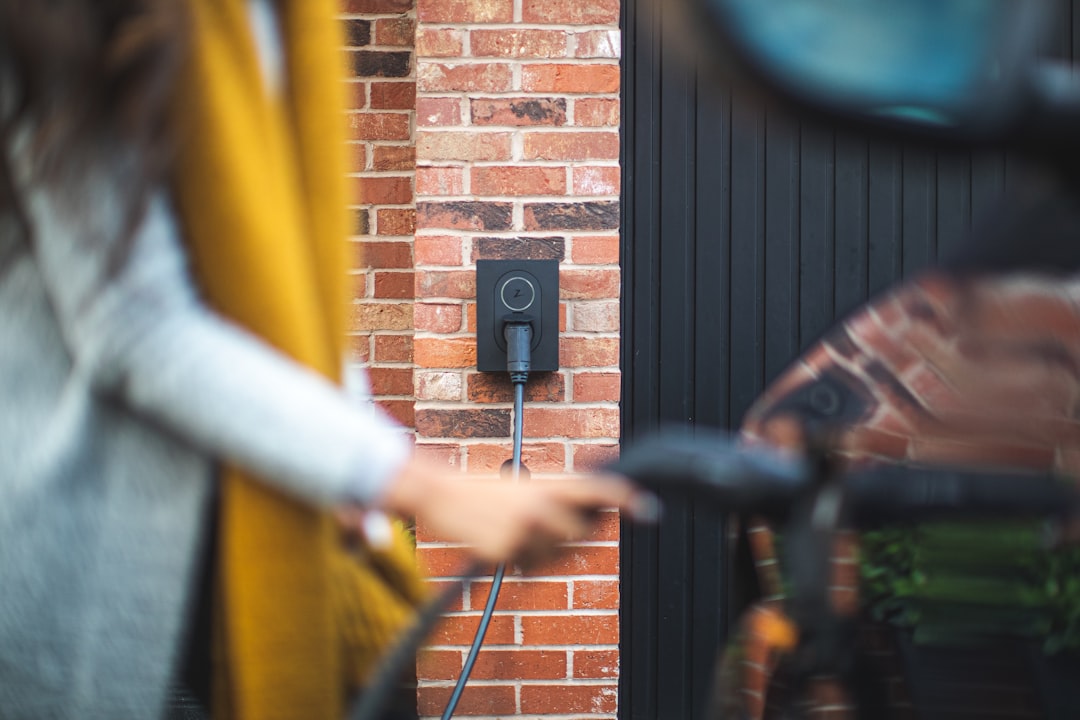As electric vehicles (EVs) continue to gain traction in the automotive market, the importance of reliable charging infrastructure becomes increasingly evident. You may find yourself drawn to the idea of owning an EV, not only for its environmental benefits but also for the potential savings on fuel costs. However, the convenience of charging your vehicle is a crucial factor that can influence your decision.
Understanding the nuances of EV charging is essential, as it encompasses a range of elements from home charging setups to public charging stations. The transition to electric mobility is not just about the vehicles themselves; it’s also about the systems that support them. As you consider making the switch to an EV, you might wonder how accessible and reliable charging options are in your area.
The landscape of EV charging is evolving rapidly, with advancements in technology and infrastructure development. Yet, challenges remain that can affect your overall experience as an EV owner. This article will delve into various factors that impact EV charging reliability, providing you with a comprehensive understanding of what to expect as you navigate this new terrain.
Key Takeaways
- EV charging reliability is affected by factors such as public charging station issues, challenges with home charging, unpredictable charging times, inconsistencies in charging infrastructure, impact of weather, and battery degradation.
- Public charging stations can have issues such as long wait times, out-of-service stations, and inconsistent charging speeds, making them unreliable for EV owners.
- Home charging can present challenges such as limited access to charging infrastructure, slow charging speeds, and the need for additional equipment or upgrades.
- Unpredictable charging times can be frustrating for EV owners, leading to inconvenience and uncertainty in their daily routines.
- The role of software and technology is crucial in improving charging reliability, with solutions such as smart charging, advanced battery management, and predictive maintenance offering potential improvements for the future of EV charging.
Factors Affecting EV Charging Reliability
When it comes to EV charging, several factors can influence how reliable and efficient the process is for you. One of the primary considerations is the availability of charging stations in your vicinity. If you live in an urban area, you may find a plethora of options, but if you’re in a rural setting, the choices may be limited.
The density of charging stations can significantly affect your ability to charge your vehicle conveniently and without stress. You might find yourself planning your trips around available charging points, which can be a hassle if they are few and far between. Another critical factor is the type of charging station available.
Each type has its own charging speed and suitability for different situations. For instance, if you rely solely on a Level 1 charger at home, you may find that it takes longer to charge your vehicle compared to using a DC fast charger at a public station.
Understanding these differences can help you make informed decisions about where and how to charge your EV effectively.
Issues with Public Charging Stations

While public charging stations are designed to provide convenience for EV owners like you, they are not without their issues. One common problem is the reliability of these stations. You may arrive at a charging station only to find it out of service or occupied by another vehicle.
This can lead to frustration and delays, especially if you’re on a tight schedule or traveling long distances.
Moreover, the condition of public charging stations can vary widely.
Some may be well-maintained and equipped with the latest technology, while others might be outdated or poorly managed. You might encounter stations that are dirty or have malfunctioning screens, making it difficult to initiate a charge. These inconsistencies can detract from your overall experience as an EV owner and may even discourage you from using public charging options altogether.
Challenges with Home Charging
| Challenges | Solutions |
|---|---|
| Lack of home charging infrastructure | Installing a home charging station |
| High upfront cost of home charging equipment | Looking for government incentives or rebates |
| Limited access to parking for charging | Seeking alternative charging locations |
| Slow charging speed | Upgrading to a faster charging station |
Home charging is often touted as one of the most convenient aspects of owning an electric vehicle. However, it comes with its own set of challenges that you should consider. One significant issue is the electrical capacity of your home.
If your home’s electrical system is outdated or not equipped to handle the demands of a Level 2 charger, you may face limitations on how quickly you can charge your vehicle. Upgrading your electrical system can be costly and time-consuming, which might deter you from fully embracing home charging. Additionally, not all homes have access to dedicated parking spaces or garages where a charger can be installed.
If you live in an apartment or a shared housing situation, finding a suitable location for a home charger can be particularly challenging. You may need to rely on public charging stations more frequently than you’d like, which brings us back to the issues associated with those facilities. The lack of reliable home charging options can create anxiety about whether you’ll have enough power to meet your daily driving needs.
Unpredictable Charging Times
One of the most significant concerns for EV owners like you is the unpredictability of charging times. Depending on various factors such as the type of charger used, battery size, and current charge level, the time it takes to fully charge your vehicle can vary dramatically. You might find yourself waiting longer than expected at a public station or realizing that your home charger isn’t providing enough power for your needs.
This unpredictability can complicate your daily routine and travel plans. If you’re accustomed to filling up a gas tank in just a few minutes, transitioning to an EV may require some adjustment in how you plan your day. You may need to factor in additional time for charging when scheduling appointments or trips, which can be frustrating if you’re used to a more straightforward refueling process.
Inconsistencies in Charging Infrastructure

The current state of EV charging infrastructure is marked by inconsistencies that can impact your experience as an electric vehicle owner. While some regions have made significant strides in developing robust networks of charging stations, others lag behind, leaving you with limited options. This disparity can create challenges when traveling outside your local area or when visiting friends and family who live in different regions.
Moreover, not all charging stations are created equal; some may offer faster charging speeds or more reliable service than others. You might find yourself navigating through apps or websites to locate the best stations available, only to discover that they are frequently occupied or malfunctioning. This inconsistency can lead to frustration and uncertainty about whether you’ll be able to charge your vehicle when needed.
Impact of Weather on Charging
Weather conditions can also play a significant role in the reliability and efficiency of EV charging. Extreme temperatures—whether hot or cold—can affect battery performance and charging times. For instance, if you live in an area with harsh winters, you may notice that your vehicle takes longer to charge when temperatures drop significantly.
Cold weather can reduce battery efficiency, leading to longer wait times at charging stations. Conversely, high temperatures can also impact battery performance and longevity. If you’re charging your vehicle during a heatwave, you might find that the battery doesn’t accept a charge as quickly as it would under more moderate conditions.
Being aware of how weather affects your EV’s performance can help you plan better and avoid potential inconveniences during extreme weather events.
Battery Degradation and Charging
Battery health is another crucial aspect that affects your experience with EV charging. Over time, batteries naturally degrade due to various factors such as temperature fluctuations, charging habits, and overall usage patterns. As an EV owner, you may notice that your vehicle’s range decreases over time, which can lead to increased anxiety about finding adequate charging options.
Understanding how to care for your battery can help mitigate some of these issues. For example, avoiding frequent fast charging and maintaining optimal temperature conditions can prolong battery life and improve overall performance. By being proactive about battery maintenance, you can enhance your EV ownership experience and reduce concerns related to charging reliability.
The Role of Software and Technology
In today’s digital age, software and technology play a pivotal role in enhancing the EV charging experience for users like you. Many modern electric vehicles come equipped with advanced software that allows you to monitor battery health, locate nearby charging stations, and even schedule charging times based on electricity rates or personal preferences. This level of connectivity can significantly improve your overall experience by providing real-time information at your fingertips.
Moreover, advancements in technology are paving the way for smarter charging solutions that adapt to user needs and preferences. For instance, some systems allow for remote monitoring and control of home chargers through mobile apps, enabling you to manage your vehicle’s charging status from anywhere. As technology continues to evolve, it holds great promise for addressing many of the challenges currently faced by EV owners regarding reliability and convenience.
Solutions for Improving Charging Reliability
To enhance the reliability of EV charging for users like yourself, several solutions are being explored across various sectors. One approach involves increasing investment in public charging infrastructure to ensure that stations are more widely available and consistently maintained. Governments and private companies are recognizing the need for robust networks that cater to growing demand as more people transition to electric vehicles.
Additionally, innovations in battery technology could lead to faster-charging solutions that minimize wait times at public stations and improve home charging efficiency. Research into solid-state batteries and other advanced technologies holds promise for creating batteries that charge more quickly while also offering greater longevity and performance stability.
Conclusion and Future of EV Charging
As electric vehicles become increasingly mainstream, the future of EV charging looks promising yet complex. While there are undeniable challenges related to reliability and accessibility that need addressing, ongoing advancements in technology and infrastructure development offer hope for improvement. As an EV owner or prospective buyer, staying informed about these developments will empower you to make better decisions regarding your vehicle’s charging needs.
In conclusion, understanding the multifaceted nature of EV charging will help you navigate this evolving landscape more effectively. By being aware of factors such as public station reliability, home charging challenges, weather impacts, and technological advancements, you can better prepare yourself for the journey ahead in electric mobility. The future holds great potential for enhancing the EV ownership experience through improved infrastructure and innovative solutions—making it an exciting time to embrace electric vehicles.
The reliability of electric vehicle (EV) charging has become a significant concern for many users, as inconsistent access to charging stations can hinder the adoption of EVs. A related article that delves into the challenges and potential solutions for this issue can be found at this link. It discusses various factors contributing to the unreliability of EV charging infrastructure and offers insights into how improvements can be made to enhance user experience.
WATCH THIS! The $7.5 BILLION Lie: Why EV Chargers Are Always Broken
FAQs
What are the common reasons for EV charging to be unreliable?
Some common reasons for EV charging to be unreliable include issues with the charging infrastructure, such as faulty charging stations or inadequate power supply. Additionally, network connectivity problems, software glitches, and compatibility issues with different EV models can also contribute to unreliable charging experiences.
How does the availability of charging stations affect the reliability of EV charging?
The availability of charging stations can significantly impact the reliability of EV charging. Limited access to charging stations, especially in certain geographic areas, can lead to long wait times and uncertainty about finding a working charging station when needed.
What role does maintenance play in the reliability of EV charging infrastructure?
Regular maintenance of EV charging infrastructure is crucial for ensuring reliability. This includes routine inspections, software updates, and prompt repairs of any issues that arise. Neglecting maintenance can lead to increased instances of unreliable charging.
How do weather conditions affect the reliability of EV charging?
Extreme weather conditions, such as heavy rain, snow, or high temperatures, can impact the reliability of EV charging. Exposure to the elements can cause damage to charging equipment and affect overall performance, leading to unreliable charging experiences for EV owners.
What measures can be taken to improve the reliability of EV charging?
To improve the reliability of EV charging, measures such as expanding the charging infrastructure, implementing standardized charging protocols, and investing in regular maintenance and upgrades are essential. Additionally, enhancing network connectivity and addressing compatibility issues can contribute to more reliable EV charging experiences.
